More information below 
More information below 
More information below 

standard plan capabilities
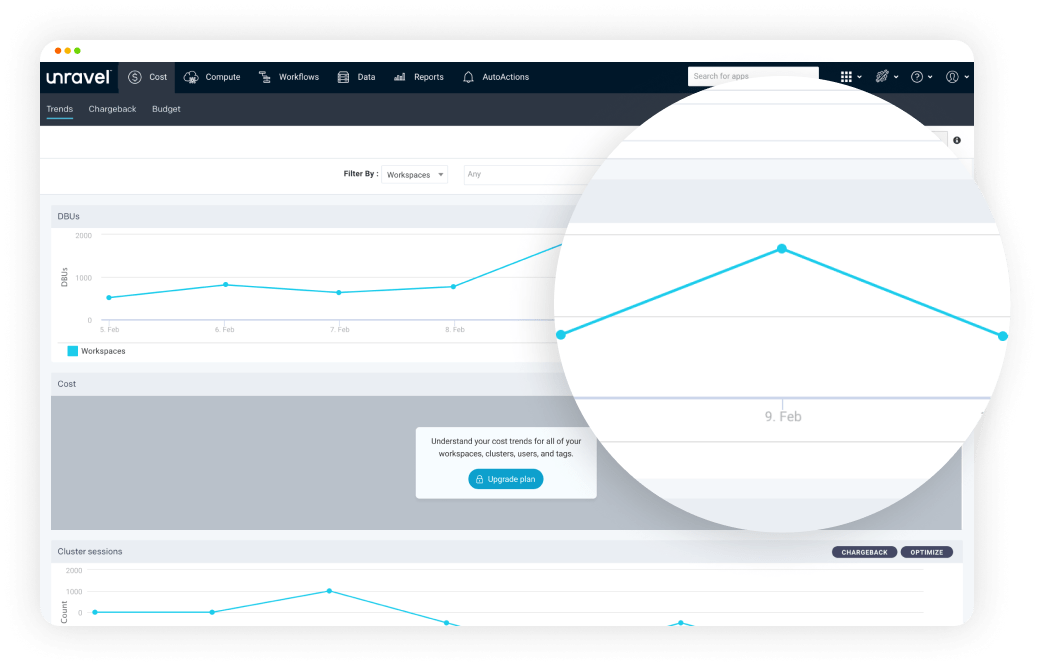
Usage trends & chargeback reports, down to individual job & user.
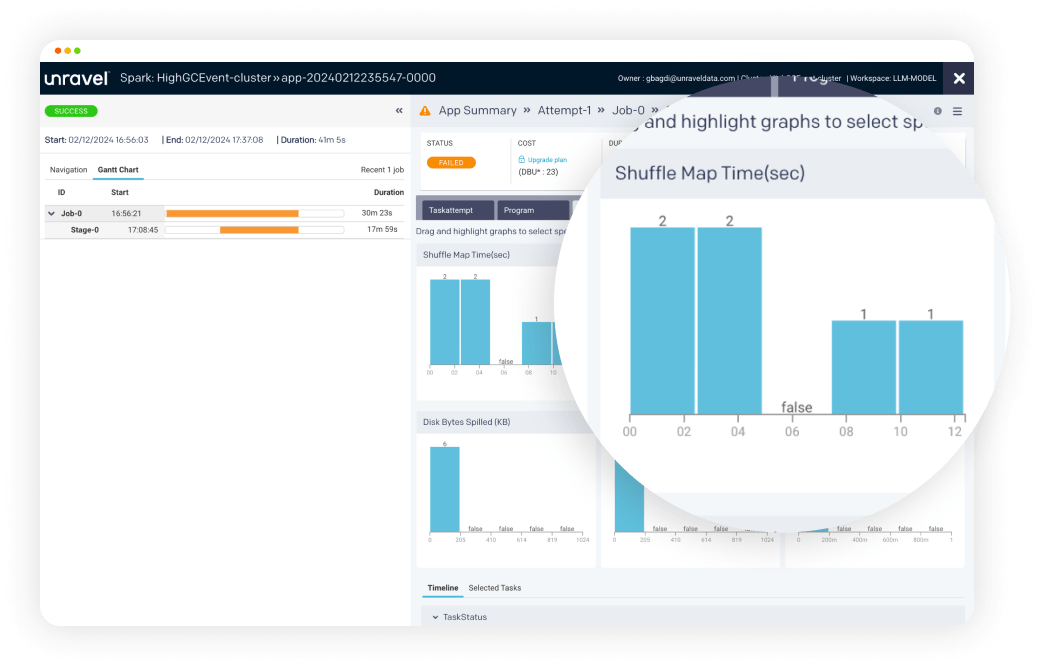
Pinpoint pipeline bottlenecks and missed SLAs, down to code level.
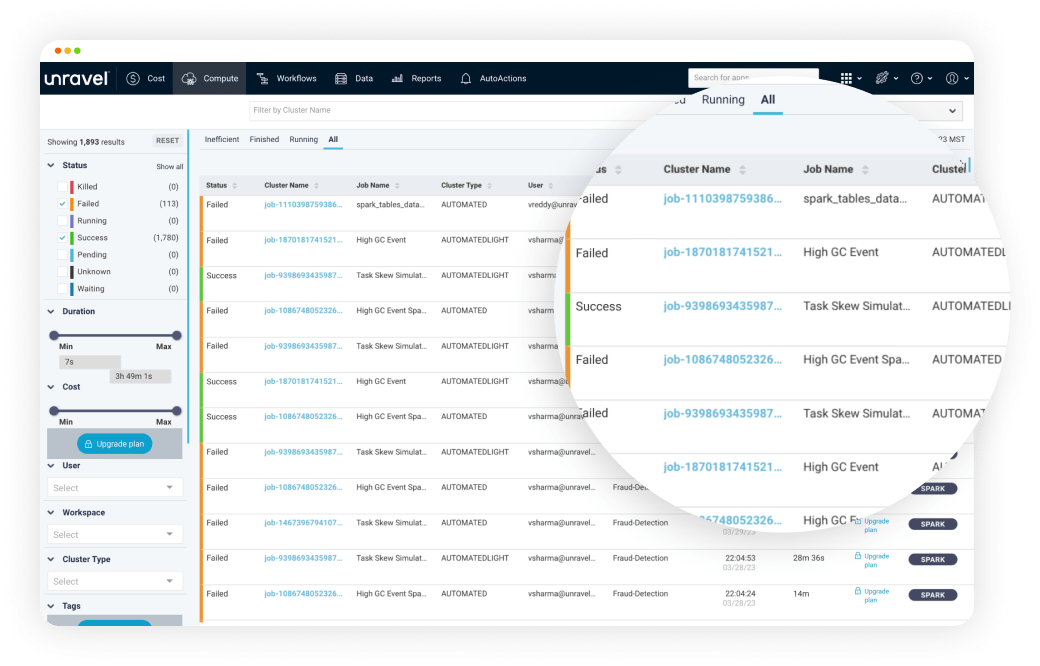
Out-of-the-box Databricks-specific reporting & dashboards on efficiency and cost drivers.
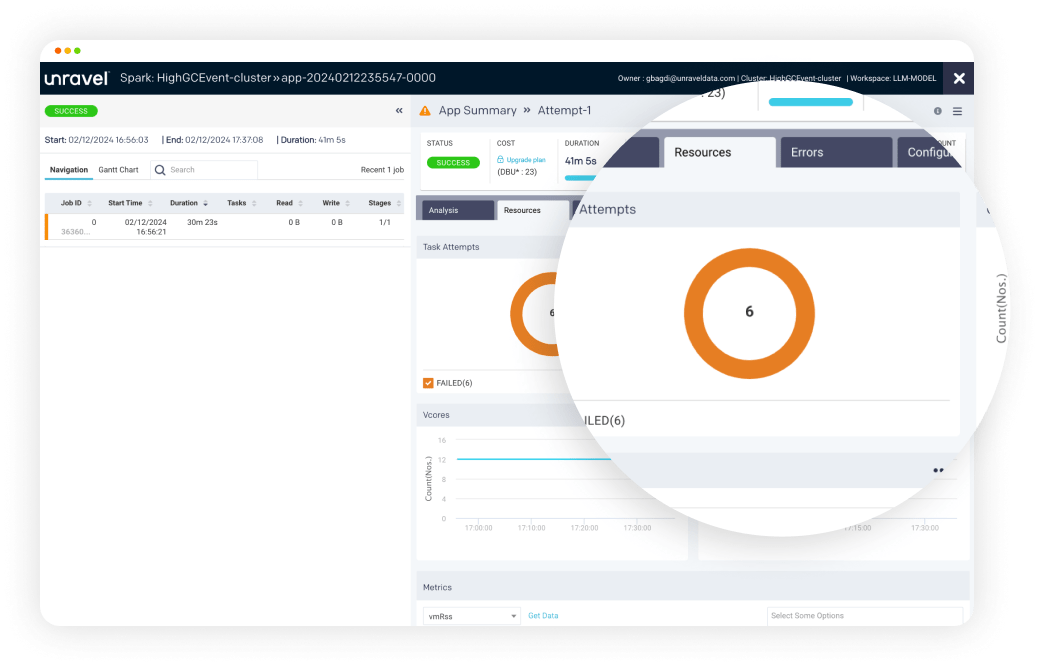
Everything you need for self-service troubleshooting in one place.

Usage trends & chargeback reports, down to individual job & user.

Pinpoint pipeline bottlenecks and missed SLAs, down to code level.

Out-of-the-box Databricks-specific reporting & dashboards on efficiency and cost drivers.

Everything you need for self-service troubleshooting in one place.
Unravel supports organizations running millions of jobs on thousands of nodes across dozens of clusters. Unravel scales to meet your needs.
Unravel does not access your data and treats all telemetry data with the highest degree of security. Unravel is committed to security and focused on keeping our clients and their data safe. The solution designed by Unravel manages customer data based on the five SOC trust services criteria — security, availability, processing integrity, confidentiality, and privacy. We use TLS encryption, the same standard used by secure websites, to secure data in transit. Unravel is SOC 2-compliant, and has earned a Service Organization Control (SOC) 2, Type II certification.
Unravel for Databricks currently has integrations with Apache Spark, Apache Kafka, Delta Lake, Apache Airflow, as well as programming languages such as SQL, Python, Java, and Scala, with plans to add integrations for more systems, platforms, and frameworks.
Unravel’s data observability platform is ideal for data-driven enterprises seeking to enhance DataOps, accelerate data-driven insights, and reduce costs. It’s designed for organizations that rely on analytics from complex data pipelines managing large volumes of data across a modern, intricate data stack.
Learn more about what makes our AI unique here.
sought after unravel capabilities
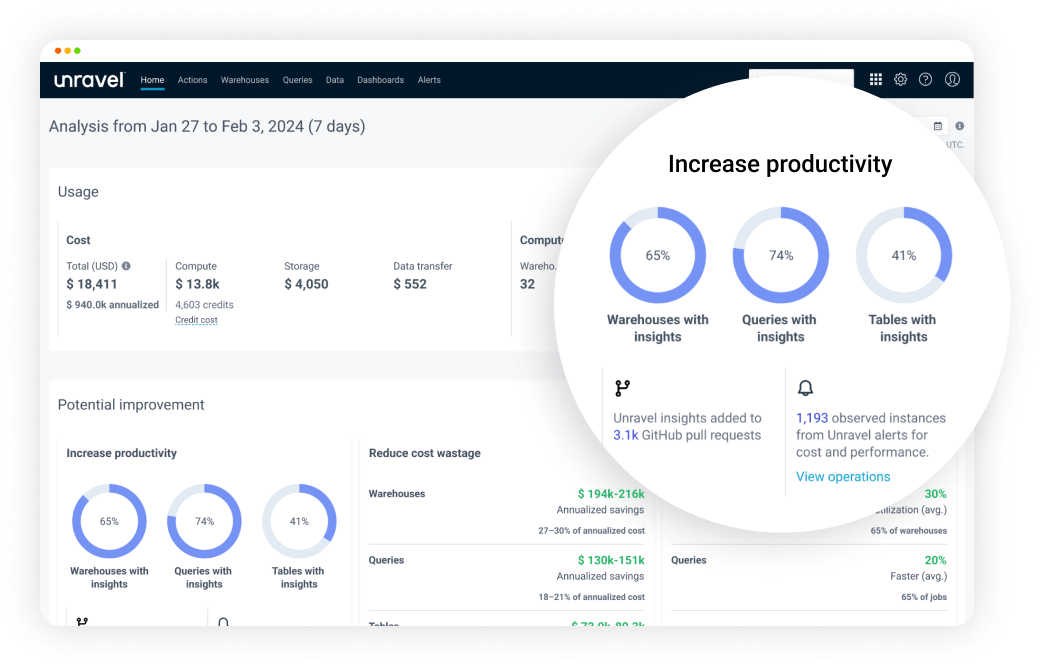
Get a bird's-eye view of opportunities to improve performance and cost efficiency.
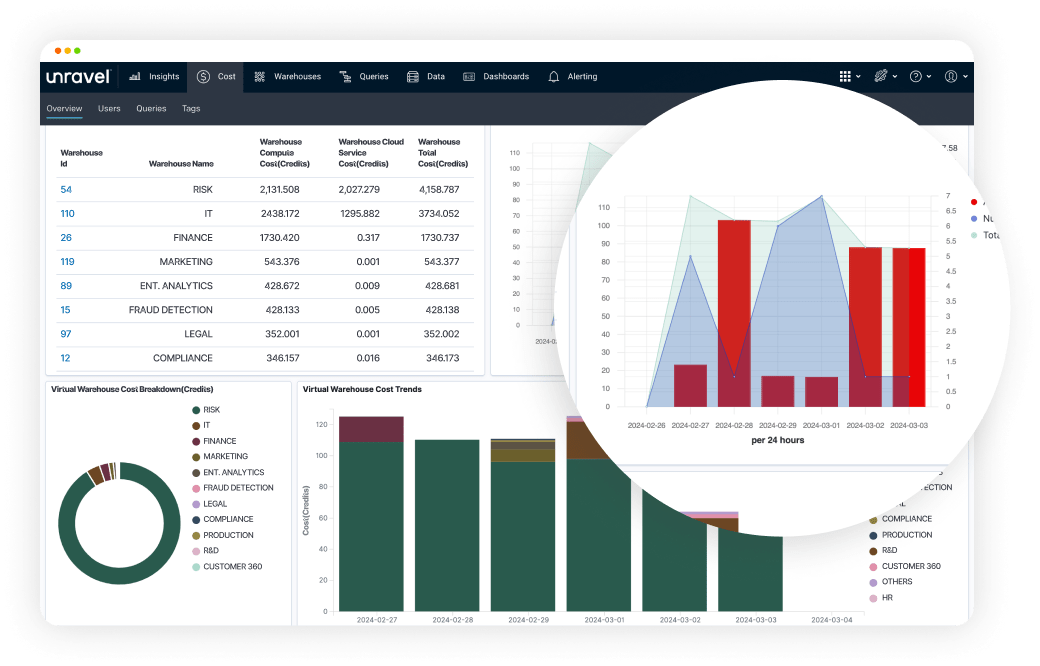
Assign credit usage with business context. Track overages.
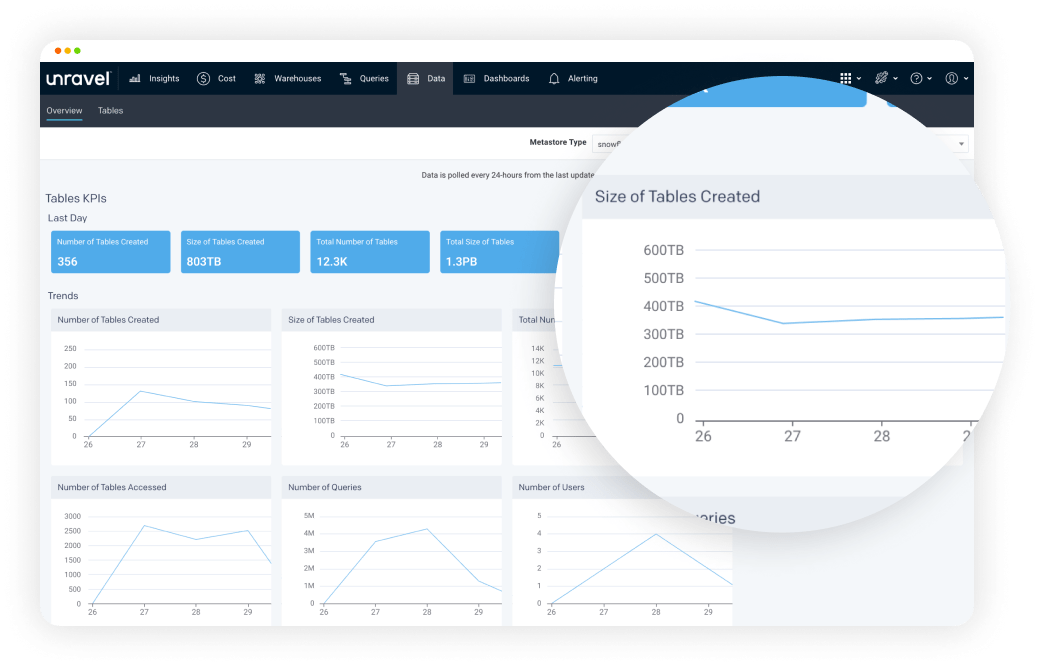
Understand table and file usage and trends to better govern your data and develop a cost-effective storage and tiering program.
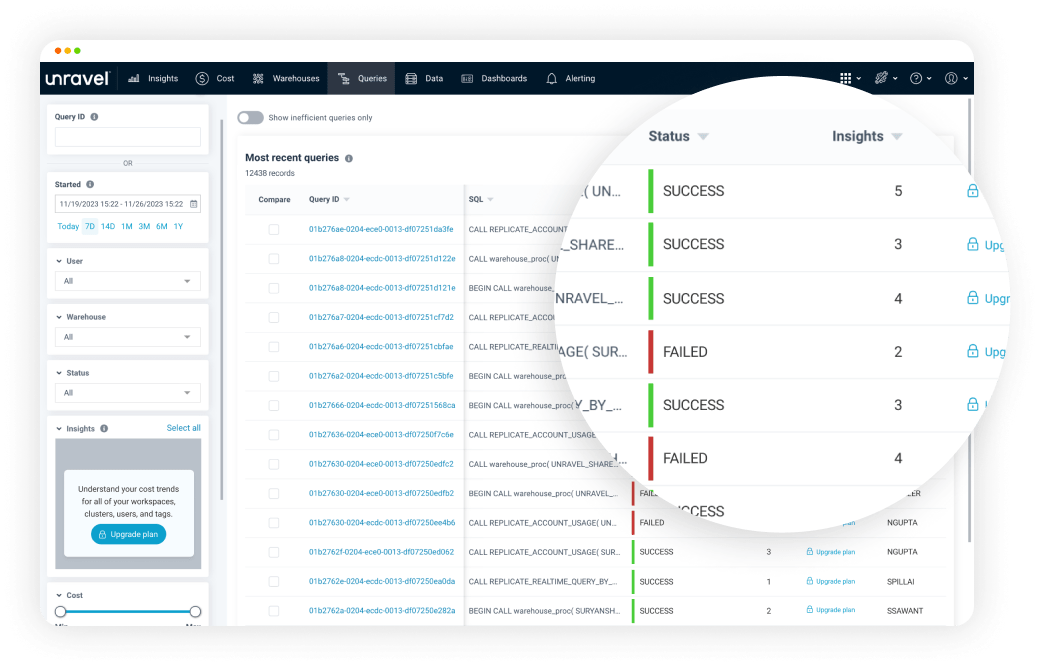
Easily access vital query metrics and telemetry data.
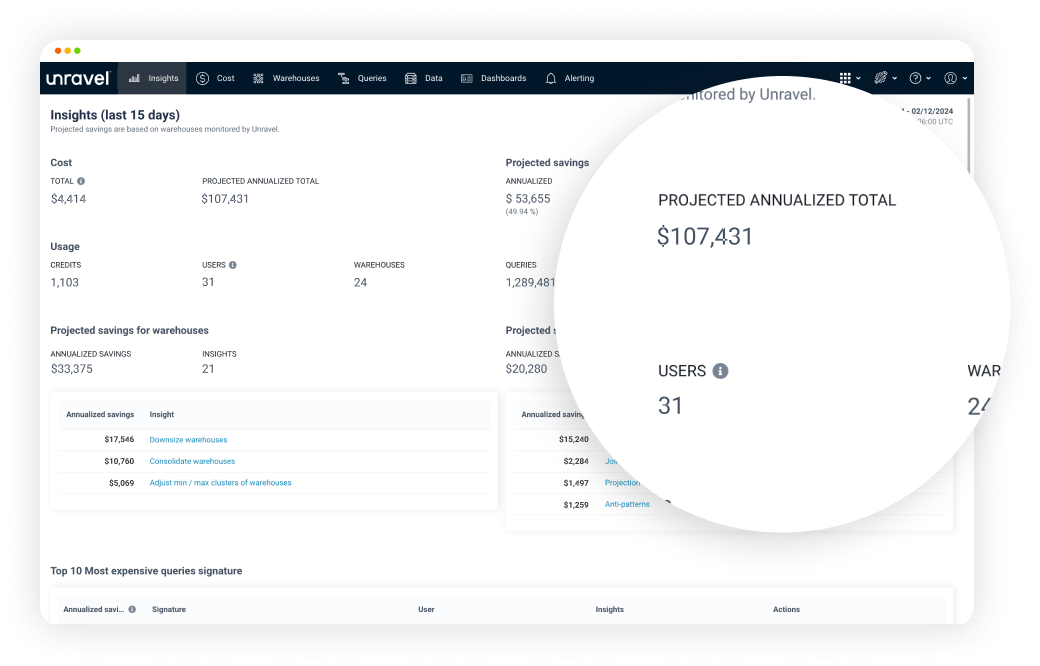
Get a bird's-eye view of opportunities to improve performance and cost efficiency.
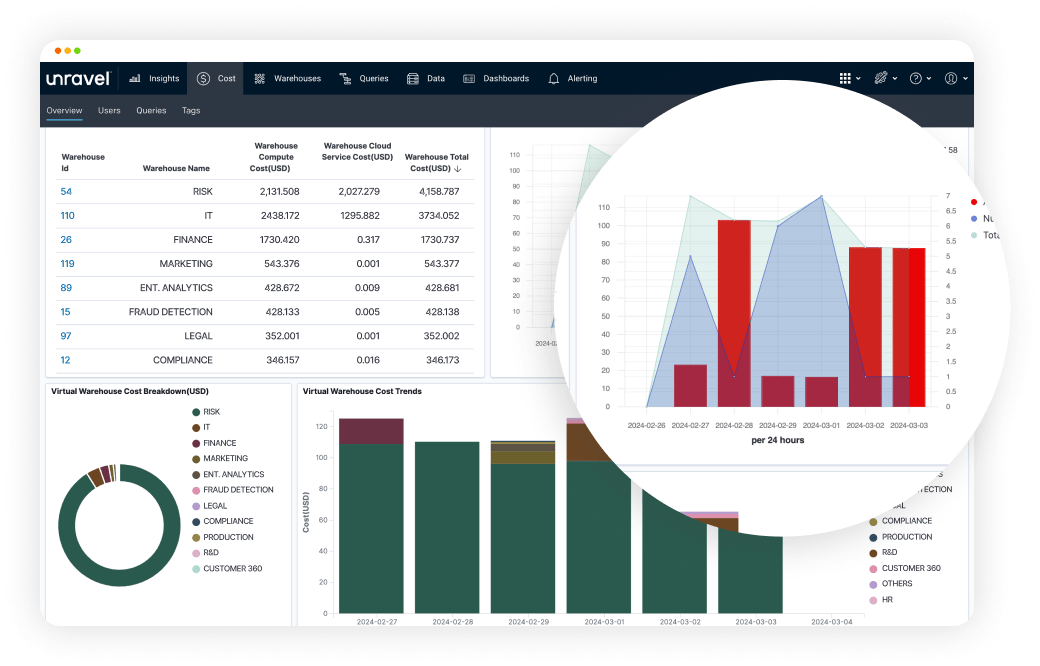
Assign cost with business context. Track overages. Get AI-driven cost-saving recommendations.
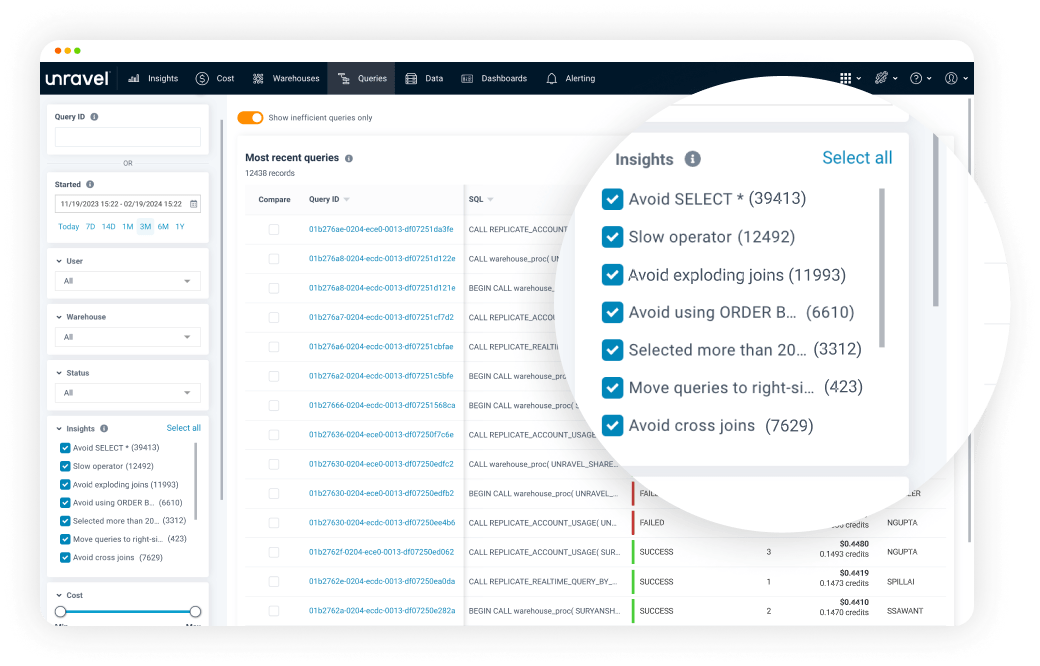
Quickly reduce spending at the warehouse & query level with AI-driven cost-saving recommendations.
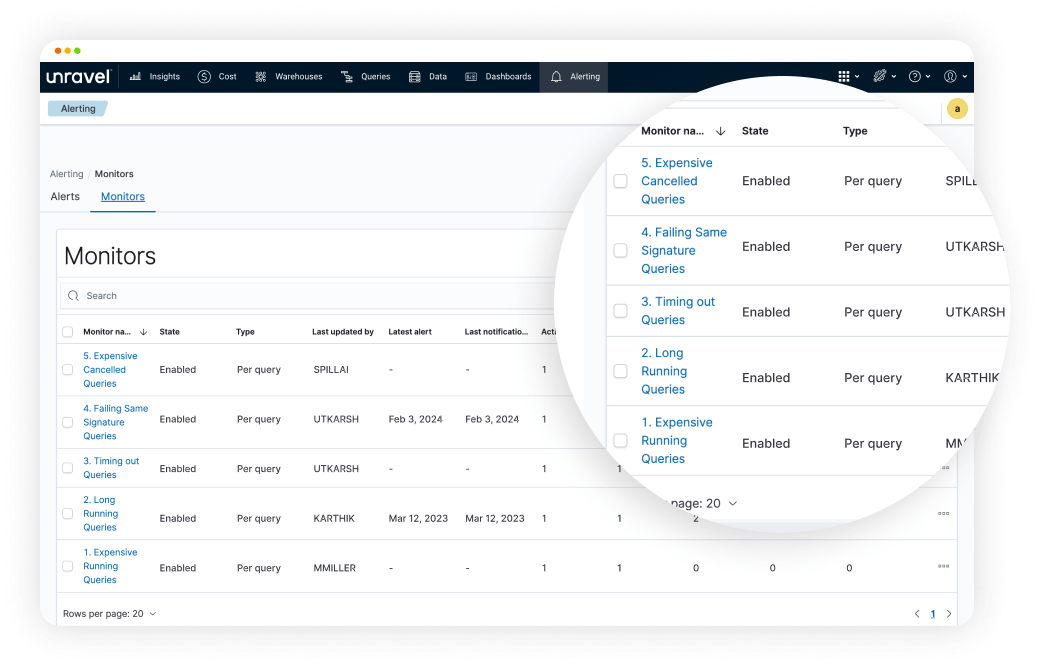
Create guardrails around common operational challenges with automated oversight and real-time notifications.
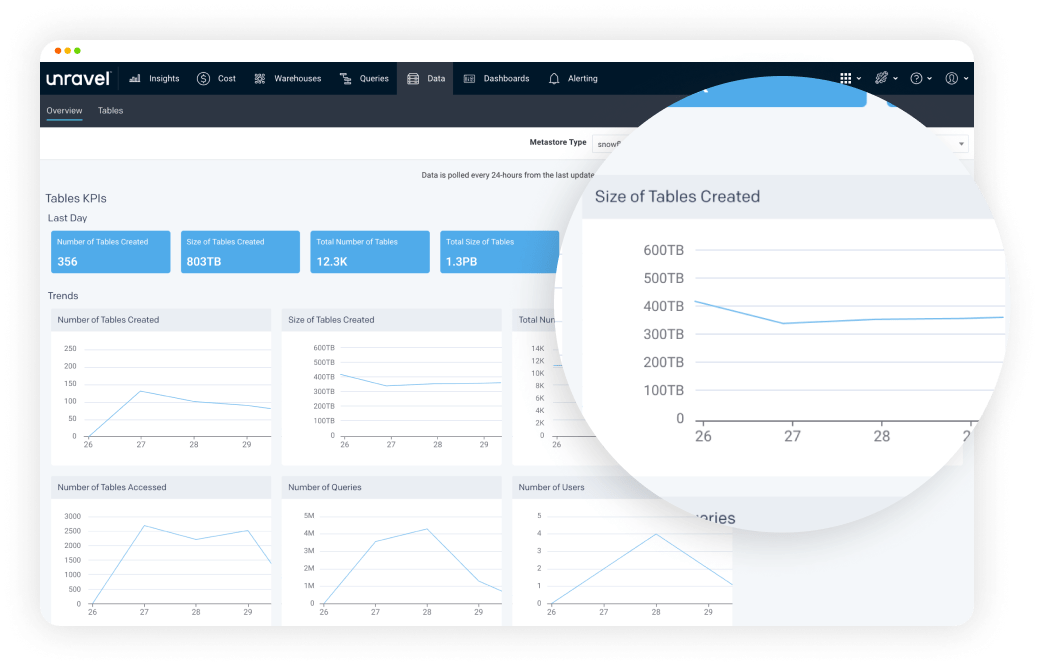
Understand table and file usage and trends to better govern your data and develop a cost-effective storage and tiering program.
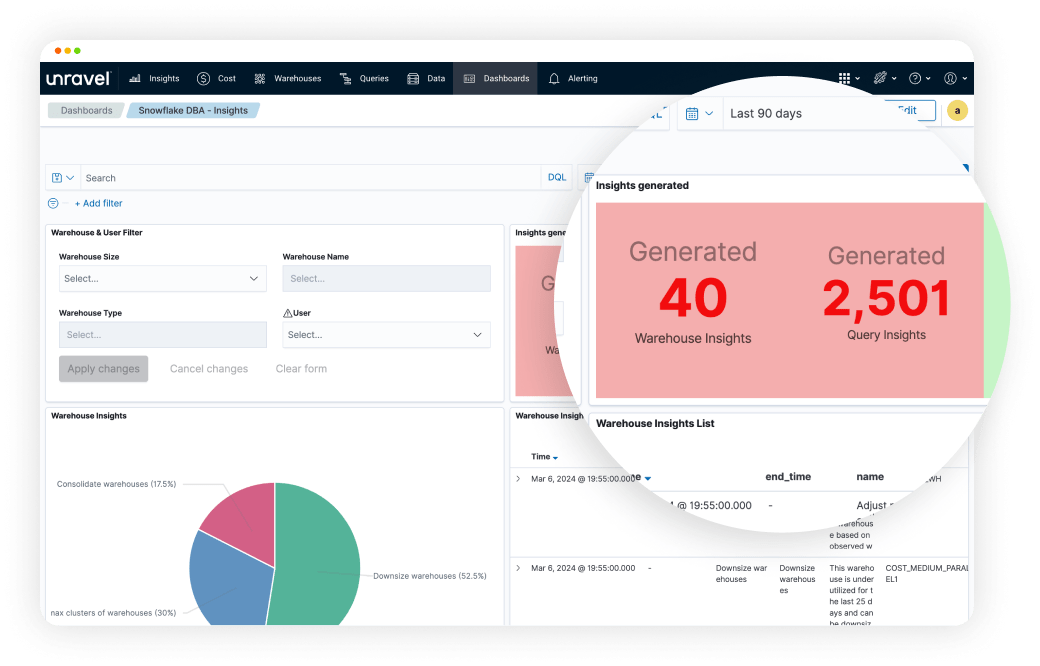
Create customized, powerful dashboards to suit your specific needs.
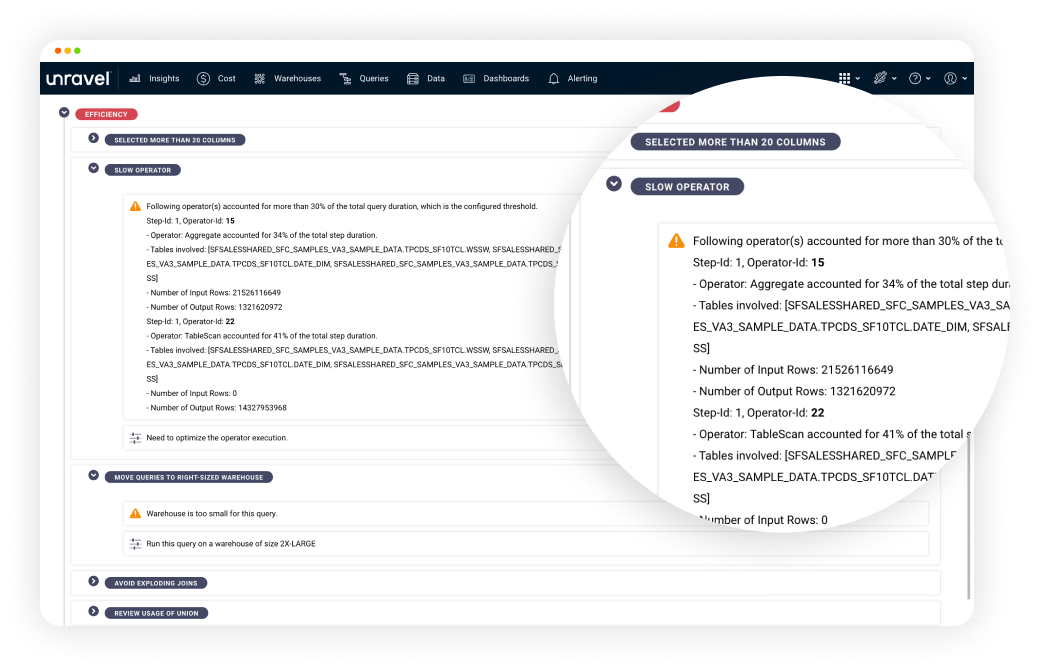
Quickly tune application performance and/or reduce costs with AI recommendations.

Get a bird's-eye view of opportunities to improve performance and cost efficiency.

Assign credit usage with business context. Track overages.

Understand table and file usage and trends to better govern your data and develop a cost-effective storage and tiering program.

Easily access vital query metrics and telemetry data.

Get a bird's-eye view of opportunities to improve performance and cost efficiency.

Assign cost with business context. Track overages. Get AI-driven cost-saving recommendations.

Quickly reduce spending at the warehouse & query level with AI-driven cost-saving recommendations.

Create guardrails around common operational challenges with automated oversight and real-time notifications.

Understand table and file usage and trends to better govern your data and develop a cost-effective storage and tiering program.

Create customized, powerful dashboards to suit your specific needs.

Quickly tune application performance and/or reduce costs with AI recommendations.
Yes. Snowflake pricing is based on virtual warehouse (compute) size, cloud services, data storage, and other factors. Compute usage is billed on a per-second basis (minimum of 60 seconds). You can also pre-purchased Snowflake capacity to reduce processing costs. Estimate Snowflake costs online with the Snowflake business value calculator.
Yes. Unravel automatically integrates and correlates external data quality checks with AI-driven insights. For example, you can drill down into quality check results, timelines, lineage, partitions, schema, usage, size, users, and more.
Yes. Unravel helps you allocate, track, and manage costs with pinpoint precision. Unravel helps you break down and allocate costs by department, team, workload, application, even down to the individual job or user level.
Unravel provides granular Insights, recommendations, and automation for before, during and after your Spark, Hadoop and data migration to Snowflake. Unravel for Snowflake is a complete data observability platform to help you tune, troubleshoot, cost-optimize, and ensure data quality on Snowflake. Unravel provides AI-powered recommendations and automated actions to enable intelligent optimization of data pipelines and data applications.
Yes. BigQuery is serverless, meaning that you do not need to deploy compute or storage. BigQuery pricing includes compute and storage costs and depends on the type of analysis, type and amount of storage, data ingestion and other factors. You can also reserve compute capacity to reduce processing costs. Estimate BigQuery costs online with the Google Cloud pricing calculator.
Yes. Unravel supports both on-demand compute pricing and BigQuery Editions. For example, Unravel can help you improve cost efficiency by recommending a different pricing plan. Unravel can also recommend the minimum and maximum slot settings depending on your workload.
Yes. Unravel alerts can be generated by setting AutoActions. For example, you can use an AutoAction to notify you about a situation that requires manual intervention, such as resource contention or stuck jobs.
Yes. Unravel provides AI-powered recommendations to help you improve query efficiency. Optimal SQL queries enable you to accelerate results and serve more user requests with your existing BigQuery resources. For example, Unravel helps you make better use of partition and cluster keys, improve performance with partition pruning, and avoid common anti-patterns such as SELECT * on “wide” tables that contain a large number of infrequently-used columns.
Yes. Unravel can be set up to automatically create and configure resources in more than 100 projects at a time. You can either add single projects or multiple projects at a time for Unravel monitoring. These projects can be added either with customer-supplied credentials or with Unravel-generated credentials.
Yes. You can create custom dashboards using a collection of pre-built components. Custom dashboards help you improve communication and collaboration between teams and give leaders visibility to key metrics.
Yes. You can create new alerts using a flexible set of criteria and communications platforms integrations. Custom alerts effectively provides an early warning system to alert you of resource usage spikes before it hits the cloud bill.